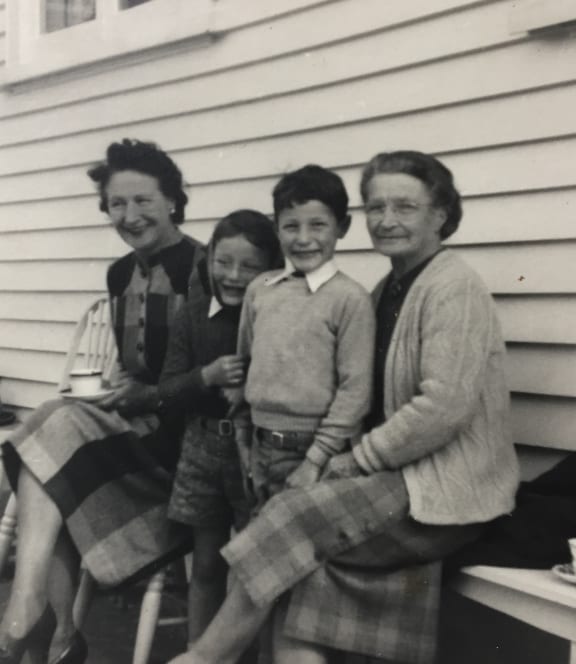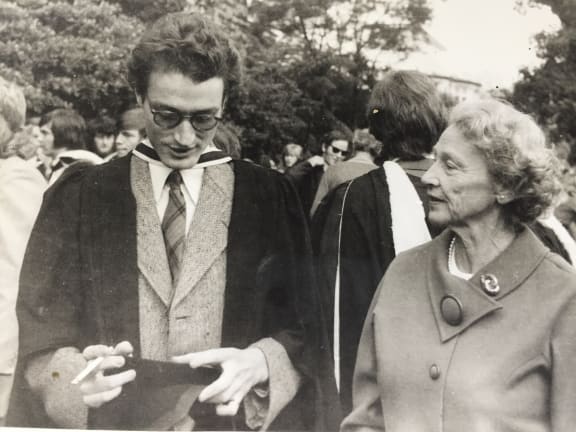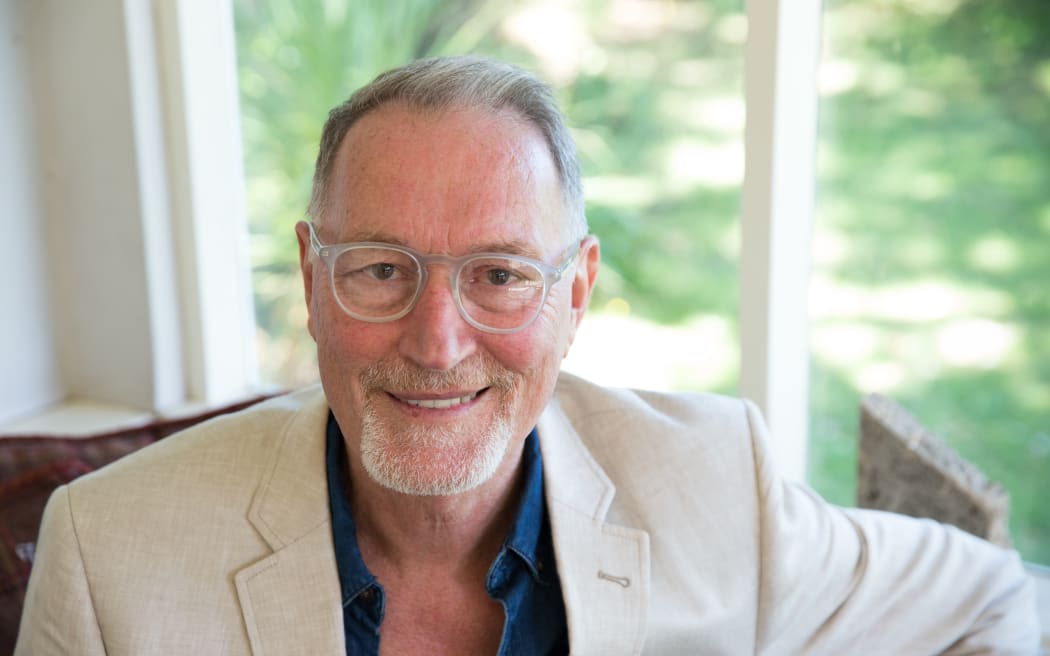Peter Wells* remembers New Zealand as a white dominion where homosexuality was illegal and women were dragooned inside the house. He assesses how far the country has come for the RNZ series My NZ.
My New Zealand no longer exists. Someone aged 20 today has no idea of what this past was like (just as I had no idea of what the 1930s was like for my parents.)

Peter Wells as a child, second from left, with his older brother and aunt, left, grandmother, right. Photo: Supplied / Peter Wells
I grew up in a white dominion with 'the best race relations in the world', where homosexuality was illegal and women, who had been working during the War, were dragooned back inside the house, while their menfolk, many disturbed by war-time experiences of slaughter, went off to work each morning and drank themselves into oblivion before pubs closed at 6pm each night. It had the sleep of an uneasy dream.
Yet the curious thing with ageing is that you look back to the past and see different things. Ordinary courteousness was expected in human relations. We ate vegetables grown in our own gardens. Things weren't thrown away and furniture was expected to last. Manufacturing was strong in New Zealand and unemployment was low. There were rich people, but they weren't worshipped. Debt was seen as a moral failing. Yet I felt unhappy, unrealised and as someone gay I had so little information about who and what I was, I had very little idea of myself. I seemed to be a vacant space awaiting illumination.
This came through a kind of perilous personal journey which younger LGBTQI people no longer have to make. I'm pleased for them at the same time as I worry that they don't appreciate how the past is never past - whatever we experience now has an instability inbuilt into it.
New Zealand as a name anyway is fading fast. It is only a matter of time before we are a republic called Aotearoa. Will this magically change racial injustice and economic and gender inequality? Possibly, or possibly not.
The longer you live the more you see moral excellence is not distributed on the basis of skin colour or sexual preference. To do so would be only to echo the prejudices that brought racism and sexism into being. Humans are all over the place. That's what makes us what we are.
At the same time New Zealand's sense of itself has been enriched, or perhaps made more real, by our knowledge of Māoritangi. We have a growing sense of how incredibly lucky we are to be living on these islands, in this part of the world.

Peter Wells graduating in 1974, with his mother Bess alongside him. Photo: Supplied / Peter Wells
But I still feel hacked off with the shortcomings: our stooping down before global celebrity culture. Our adulation of sport seems part of the same deafness. Pākehā want to substitute Māori culture instead of thinking through their own culture, its positive contributions as well as its historical debts. Inequality has reached toxic levels.
New Zealand is not as it was and I'm glad about that but I also regret some aspects of this change. I keep seeing glimpses of what Aotearoa could possibly be in the best of all possible worlds. But it's still in kind of B minus territory for me. I come from the school of hard markers. 'Could do better.'
*Peter Wells is an author and film-maker. His first book was a breakthrough piece of gay fiction and won the 1992 NZ Book Awards. He has subsequently written both history, novels and memoir and co-directed the flamboyant feature film Desperate Remedies which is most often described as 'Jane Austen on acid.'
Join us each day this week as another New Zealander shares how they see Aotearoa in 2017 - what they prize about the country, what concerns them and what they hope the country’s future will hold.


